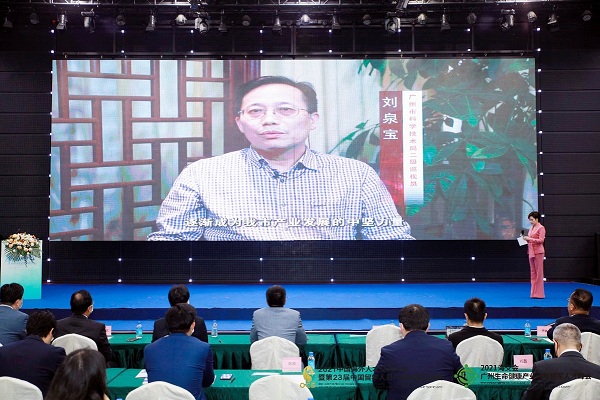Guangzhou launches convention to attract overseas talents

A convention on exchange of overseas talents kicks off online in Guangzhou, the capital of Guangdong province, on Dec 17, 2021. [Photo provided to chinadaily.com.cn]
A convention on exchange of overseas talents kicked off online in Guangzhou, the capital of Guangdong province, on Friday, aiming to introduce high-caliber individuals from overseas to China and particularly to the Guangdong-Hong Kong-Macao Greater Bay Area.
The 2021 Convention on Exchange of Overseas Talents and the 23th Guangzhou Convention of Overseas Chinese Scholars in Science and Technology focuses on facilitating talent supply to emerging industries of strategic importance as outlined in China's 14th Five-Year Plan (2021-25), and frontier technology sectors, including artificial intelligence, biotechnology and new energy.
The overseas talents include Chinese studying or working overseas and foreign professionals and students. Potential employers include universities, research institutes, technology companies and science parks.
The convention, one of the most influential events of its kind in China, has attracted more than 50,000 talents from over 140 countries and regions over the last two decades, helping introduce more than 50,000 projects, according to the organizers.
"Based on key science and technology platforms and innovation projects, we are now eager to introduce high-end talents in science and technology," said Wang Dong, vice-mayor of Guangzhou.
According to Wang, there are currently more than 120 academicians of the Chinese Academy of Sciences and Chinese Academy of Engineering working in Guangzhou, with more than 10,000 people having obtained talent green cards.
The city has implemented rules on science and technology innovation, planning to build an international talent zone in its Nansha district, part of the Guangdong-Hong Kong-Macao Greater Bay Area.
"Qualified talents will be given preferential policies in housing and transportation. Projects to be introduced will be supported by financial subsidies," Wang said.
